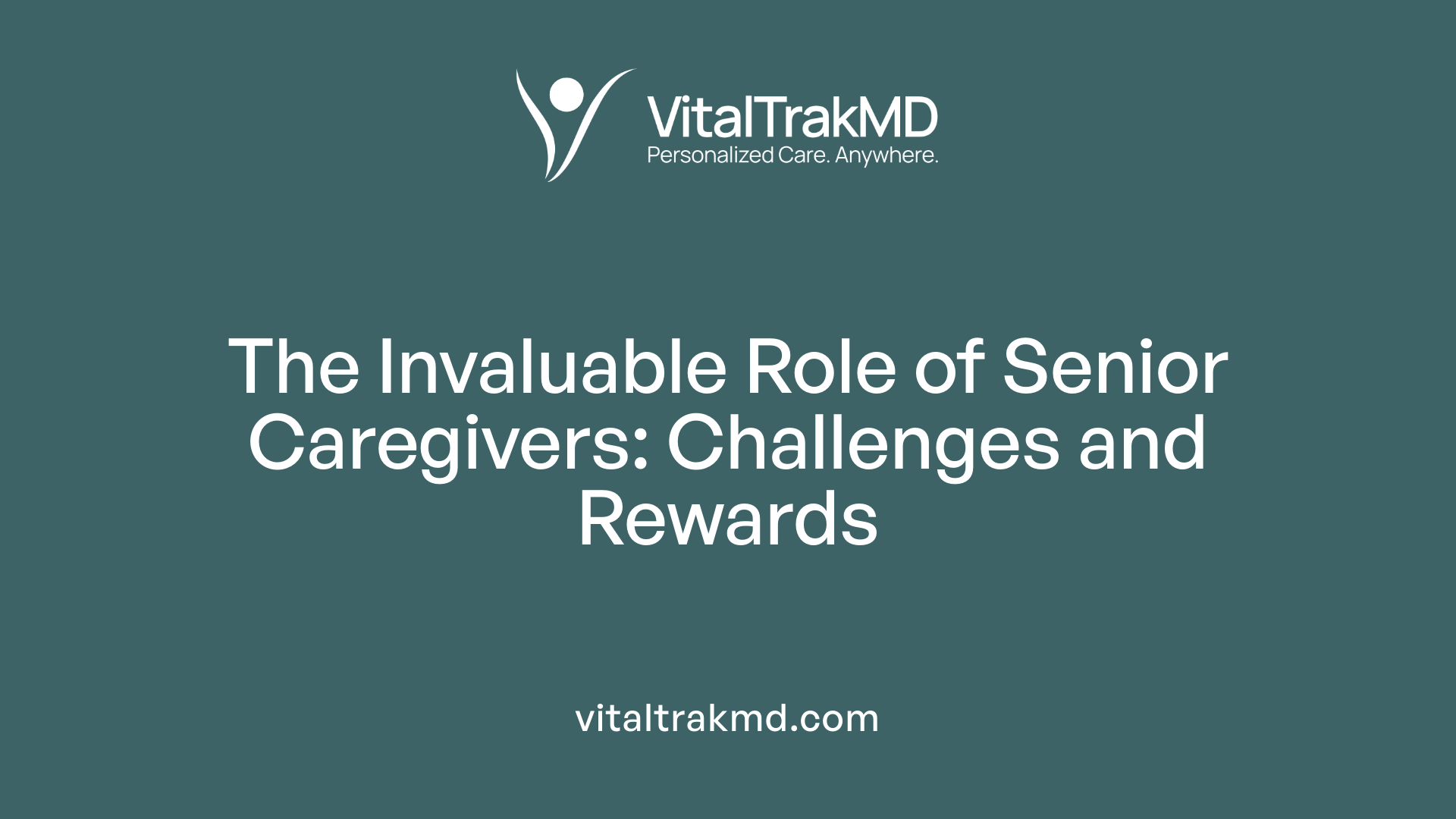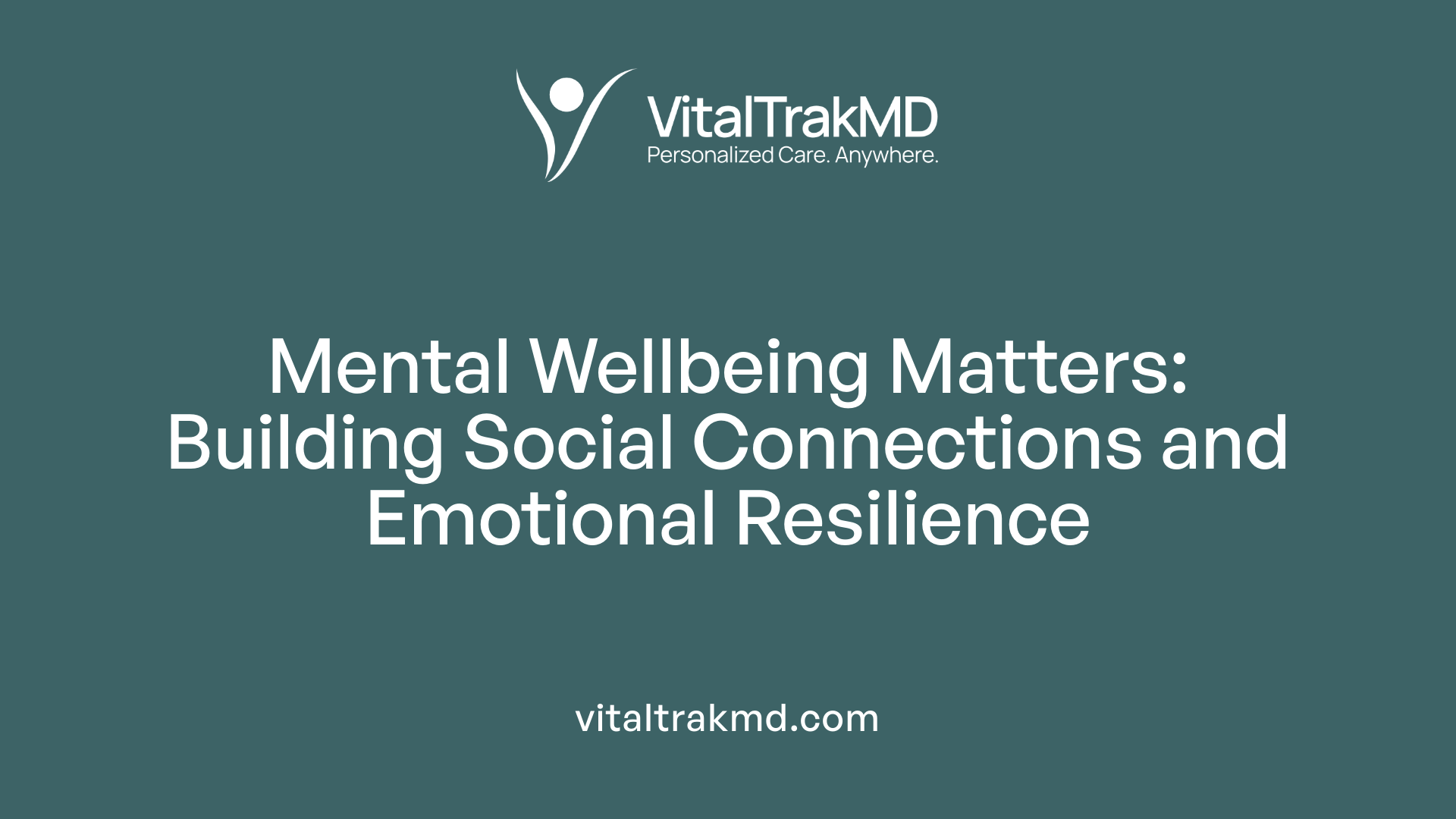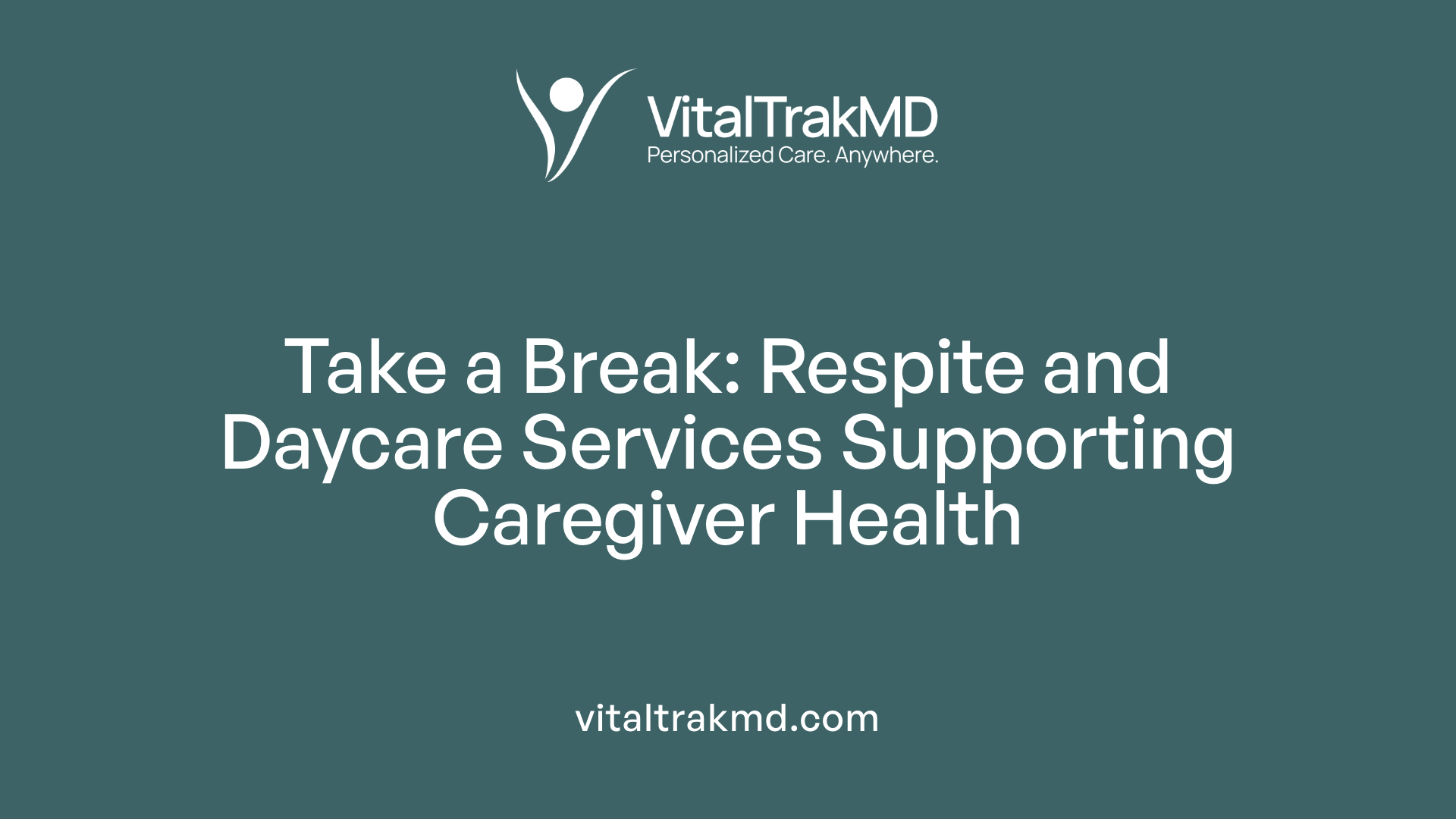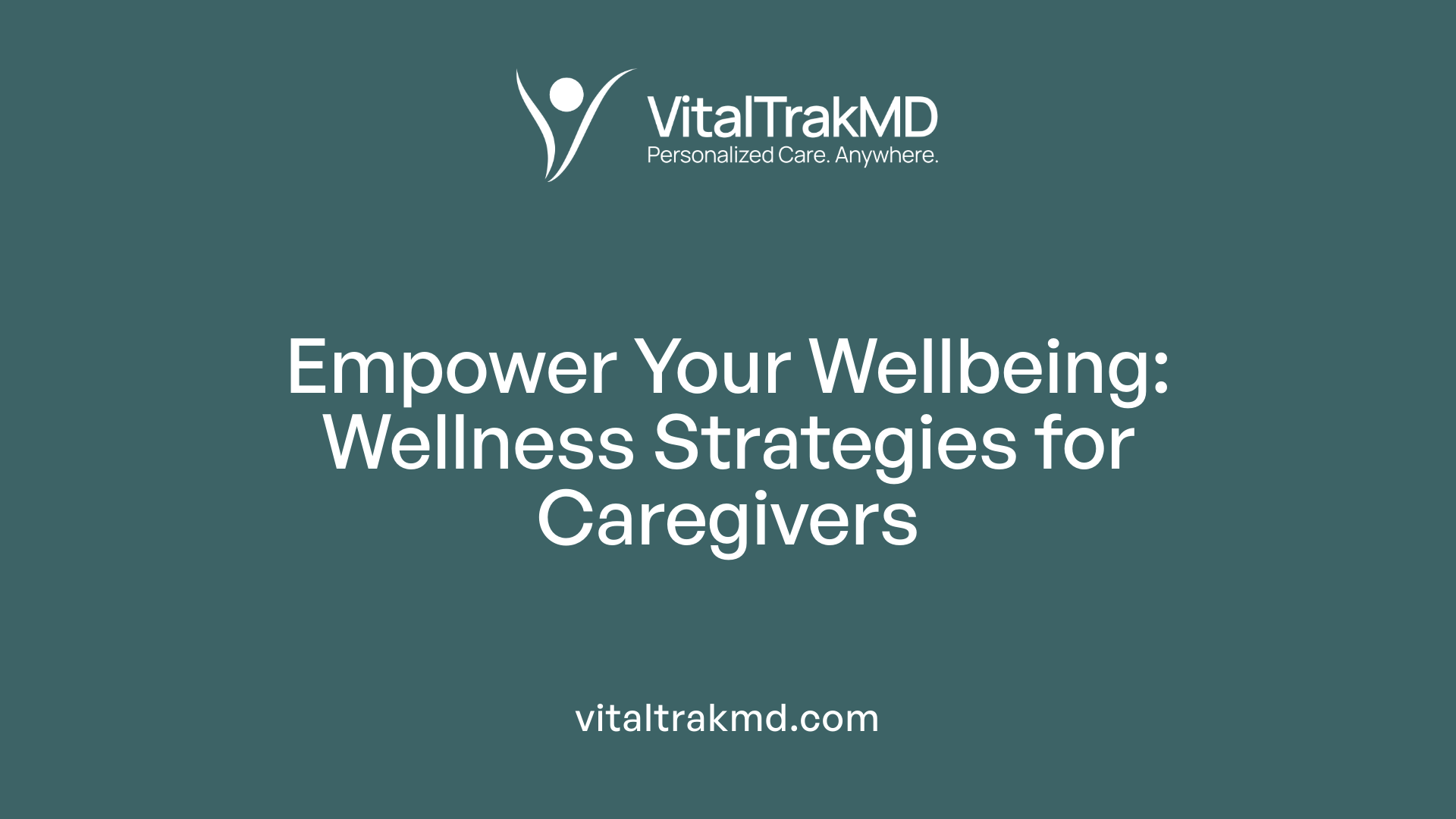Why Hybrid Programs Reduce Overwhelm for Senior Caregivers

Why Senior Caregivers Face Overwhelm and How Hybrid Programs Offer Relief
Senior caregivers frequently endure significant physical, emotional, and logistical challenges that contribute to feelings of overwhelm and burnout. The demanding nature of caregiving—balancing medical tasks, personal support, and maintaining one's own well-being—necessitates innovative care solutions. Hybrid care programs, which combine in-home personalized assistance with remote wellness and support services, present a promising model to alleviate caregiver stress while enhancing care quality.
Understanding the Multifaceted Role of Senior Caregivers

What Are Caregivers' Physical and Emotional Challenges?
Caregivers often face significant physical demands such as assisting with mobility, transfers, bathing, and dressing seniors. These duties can cause physical strain and potential injuries. Emotionally, caregivers may experience stress, anxiety, and feelings of isolation. Taking regular breaks and engaging in pleasant activities helps reduce blood pressure and manage stress.
Why Is Emotional Support and Clear Communication Important?
Emotional support plays a pivotal role in caregiving, as caregivers build trust and strong relationships with seniors. Clear communication ensures that both medical and emotional needs are addressed effectively. Mindfulness exercises like meditation and journaling enhance emotional health by reducing stress, which benefits both caregivers and seniors.
How Does Caregiving Impact Longevity and Self-Esteem?
Research indicates that family caregivers may live longer, with a nine-month increase in life expectancy. Caregiving can boost self-esteem through gaining recognition and gratitude from care recipients. Maintaining social connections and finding spiritual meaning in caregiving are linked to better emotional health.
What Role Does Mental Health Play in Weight Loss and Wellness Programs?
Mental health profoundly influences motivation and emotional regulation, which are essential for sustaining wellness routines. Stress and isolation challenge caregivers' ability to maintain their health. Incorporating emotional support and mindfulness into care programs improves mental wellness, aiding caregivers in managing their responsibilities more effectively.
How Hybrid Programs Integrate Personalized Home Care with Wellness Support

Combination of Medical, Emotional, and Daily Living Support
Hybrid senior care programs blend in-home medical assistance with personalized emotional and daily living support, fostering comprehensive wellness for seniors. This approach includes companionship, medication management, vital signs monitoring, and help with daily activities, meeting both health and emotional needs.
Personalized Care Plans Created Collaboratively
These programs develop customized care plans through collaborative consultations involving healthcare professionals, caregivers, and seniors themselves. This teamwork ensures care aligns with individual health goals and lifestyle preferences, supporting independence and improving quality of life.
Services Addressing Both Seniors' and Caregivers' Needs
Beyond serving seniors, hybrid programs extend support to caregivers by incorporating wellness initiatives like the Wellness for Caregivers program. This free, pre-registered program offers sessions on Strength & Balance, Stretching & Mobility, and Mindfulness, designed to reduce physical strain and stress. By addressing the well-being of both parties, hybrid programs promote a balanced caregiving environment.
Physical Wellness for Caregivers: Preventing Injury and Managing Strain

Exercise Programs Focused on Caregiver Strength and Balance
Caregiving often involves physical tasks such as lifting, bathing, and dressing seniors, which can lead to muscle strain and injury if not done properly. To address this, specialized exercise programs like the Wellness for Caregivers offer sessions in Strength & Balance and Stretching & Mobility. These exercises are designed to enhance stability, flexibility, and muscle endurance, thereby helping caregivers perform their duties more safely and effectively.
Mindfulness to Reduce Stress and Burnout
Physical strain is often compounded by emotional stress in caregiving roles. The Wellness for Caregivers program incorporates mindfulness techniques, including breathing exercises, meditation, and journaling, to help caregivers manage stress. This holistic approach not only promotes physical wellness but also supports mental well-being, reducing burnout and enhancing resilience.
Supporting Caregivers' Physical Duties Through Tailored Exercises
Tailored exercises learned in these programs focus on the movements carers frequently use, helping to prevent injuries from improper techniques. By improving caregivers' physical fitness, these exercises enable them to maintain their own health while providing compassionate care. Accessibility is ensured as the program is free and requires pre-registration, making wellness attainable.
Addressing Weight Loss and Wellness in Caregivers
While wellness programs targeting weight loss emphasize personalized plans combining physical activity and behavioral change, caregivers benefit similarly from structured programs focusing on physical and mental health. Strength & Balance and Mindfulness sessions strengthen caregivers' physical stamina and reduce injury risks, which are essential for sustaining caregiving demands.
| Focus Area | Program Component | Benefits |
|---|---|---|
| Physical Strength | Strength & Balance | Enhances muscle endurance, reduces injury risk |
| Flexibility and Mobility | Stretching & Mobility | Improves flexibility, supports daily caregiving tasks |
| Stress Management | Mindfulness | Decreases stress, prevents burnout through meditation |
| Practical Application | Tailored Exercises | Supports lifting, bathing and dressing, reduces physical strain |
| Accessibility | Free Program | Encourages participation with no financial barriers |
Mental Health and Social Connection: Essential Pillars of Caregiver Wellness

Why Are Social Support Networks Important for Caregivers?
Support from friends, family, and peer groups plays a crucial role in maintaining caregivers' emotional health. Caregivers who stay socially connected experience better mental well-being compared to those who feel isolated. Engaging regularly with others provides a vital outlet for sharing feelings, reducing loneliness, and receiving practical assistance.
How Does Spiritual or Religious Engagement Benefit Caregivers?
Finding spiritual or religious meaning in caregiving work contributes positively to emotional health. Caregivers who embrace these aspects often report greater resilience and satisfaction. This deeper sense of purpose can act as a buffer against stress, helping caregivers maintain balance in their demanding roles.
What Strategies Help Manage Caregiving Stress and Emotional Burdens?
Effective stress management includes taking regular breaks for enjoyable activities, practicing mindfulness through breathing exercises, meditation, and journaling. Programs like Wellness for Caregivers emphasize these techniques to prevent burnout. Additionally, seeking respite care such as adult daycare and requesting specific help from others facilitate essential rest periods, thereby improving sleep and reducing blood pressure.
How Do Wellness Programs Support Long-Term Emotional Resilience?
Wellness programs designed for caregivers address physical, emotional, and psychological needs through multidisciplinary resources. By combining social support, mindfulness practices, and respite options, these programs foster emotional resilience essential for sustaining caregiving over time. This comprehensive support improves caregivers' quality of life and their capacity to care effectively.
Utilizing Respite and Adult Daycare Services to Alleviate Caregiver Burden

Benefits of breaks for caregiver health
Taking regular breaks from caregiving plays a crucial role in sustaining both the emotional and physical health of caregivers. Engaging in pleasant activities during these breaks can help lower blood pressure and manage stress levels effectively. This pause from responsibilities helps caregivers recharge, fostering better overall wellness.
Role of adult daycare in offering stress relief and improved sleep
Adult daycare programs provide a structured environment where seniors receive care, allowing caregivers time off. These programs not only alleviate stress but also contribute to improved sleep quality for both caregivers and care recipients. By offering professional support and companionship during the day, adult daycare helps reduce caregiver fatigue.
How respite care supports sustainable caregiving
Respite care services, including in-home help or adult daycare centers, are vital in promoting sustainable caregiving. They allow caregivers to maintain balance by temporarily sharing care responsibilities. Access to respite care helps prevent burnout by ensuring caregivers can rest, engage socially, and attend to their personal health needs.
Addressing challenges in caregiving and parallels with wellness programs
Caregivers often face challenges like managing stress and maintaining motivation, similar to obstacles encountered in weight loss care programs. Respite services provide essential support by creating opportunities for rest and enhancing emotional health. Such strategies mirror those used in comprehensive wellness care programs, highlighting the importance of scheduled breaks and self-care practices to sustain caregiving roles.
How Hybrid Wellness Programs Empower Caregivers to Prioritize Their Own Health

Encouraging balanced nutrition, exercise, and medical care
Caregivers often face physical and emotional challenges, making self-care essential. Hybrid wellness programs promote balanced nutrition and exercise tailored to caregivers' needs. These programs stress the importance of regular medical checkups, helping caregivers maintain their health while managing care responsibilities.
Offering accessible online and in-person resources
Accessibility is vital for busy caregivers. Hybrid programs combine online materials with in-person sessions, allowing flexible participation. For example, the Wellness for Caregivers program offers free sessions including Strength & Balance, Stretching & Mobility, and Mindfulness, making wellness resources available anytime and anywhere.
Supporting sustainable behavior change for long-term wellness
Long-term success depends on sustainable habits. Hybrid programs incorporate mindfulness exercises like meditation and journaling that reduce stress, alongside physical exercises designed to minimize injury during caregiving tasks. This combination nurtures both mental and physical wellness over time.
How can individuals choose the right wellness program for their weight loss goals?
Choosing wellness programs that emphasize evidence-based strategies, qualified professional involvement, and personalized support ensures success. Caregivers benefit similarly from hybrid programs that provide accessible, multifaceted resources tailored to their physical and emotional needs, facilitating ongoing self-care and reducing overwhelm. This approach aligns with effective weight loss and comprehensive wellness alike.
The Future of Senior Care: Data-Driven and Multidisciplinary Coordination
How does technology enhance senior care?
Technology is transforming senior care with tools like telehealth and mobile apps, enabling real-time health monitoring and remote consultations. These innovations reduce the need for in-person visits, making care more accessible and convenient. Telehealth fosters earlier intervention and continuous oversight, while apps assist with medication reminders and vital sign tracking, supporting personalized care plans.
What role do clinical and community resources play in integrated senior care?
Effective senior care relies on collaboration between healthcare professionals and community services. Clinical oversight ensures medical needs are addressed accurately, while community resources provide emotional and social support. Combining these elements allows caregivers and professionals to tailor interventions that promote physical health, emotional well-being, and independence.
How can logistical barriers be minimized while boosting caregiver involvement?
Reducing logistical challenges involves streamlined communication among care teams and families through data-sharing platforms. This coordination lessens caregiver overwhelm by clearly outlining responsibilities and schedules. Programs promoting caregiver wellness, such as those incorporating exercise and mindfulness, also engage caregivers actively, enhancing their resilience and capacity to provide compassionate care.
How do coordinated approaches address weight loss care and other challenges?
Coordinated, multidisciplinary strategies using technology help overcome common challenges like treatment adherence and limited access to resources. Hybrid care models integrate clinical guidance with supportive services and leverage data-driven tools to monitor progress and adjust plans promptly. This holistic approach not only aids weight loss care but also reduces caregiver burden and improves overall senior wellness.
Empowering Caregivers Through Hybrid Programs to Foster Wellness and Reduce Overwhelm
Hybrid care programs that blend personalized in-home services with remote wellness support present a powerful solution to the complex challenges faced by senior caregivers. By addressing physical health through targeted exercises, mental well-being through mindfulness and social connections, and logistical relief through respite and technology, these programs reduce caregiver overwhelm and promote sustainable care. Emphasizing individualized plans developed collaboratively ensures that both seniors’ and caregivers' needs are met holistically, enhancing quality of life. As caregiving demands continue to evolve, hybrid models will play a critical role in supporting caregiver longevity, wellness, and resilience, ultimately benefiting entire families and communities.
References
- How Senior Home Health Care is Revolutionizing ...
- The Surprising Health Bonus of Caregiving
- New Wellness for the Caregiver Webinar Series
- The 5 Best Weight Loss Programs in 2025
- Choosing a Safe & Successful Weight-loss Program - NIDDK
- Choosing a Safe & Successful Weight-loss Program - NIDDK
- Choosing a Safe and Successful Weight-loss Program
Recent articles
Want to Feel Better and Live Healthier?
Join hundreds of patients taking control of their health with personalized care that fits their life – not the other way around.
Rated 4.8/5 by 32+ customers







